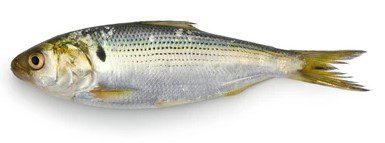

Shad can be an excellent and beneficial addition to a dog’s diet. However, it is important to take certain precautions when giving shad to dogs. It should be completely deboned and cooked before serving, as raw shad fish can contain parasites. Shad is low in mercury content but bones can be a choking hazard.
Shad is a great source of omega-3 fatty acids which can help support canine cardiovascular health. It is also high in protein, which is important for muscle development and tissue repair.
Shad must be fully deboned and cooked before serving to prevent choking, intestinal obstruction, and potential parasites.
Clean the shad thoroughly and cook without seasoning. Remove the bones and serve shad to your dog as a treat.
Shad, which is also known as herring or alewife, is a fish found in the North Atlantic and the Mediterranean Sea. It is quite common in parts of Europe and Asia, where it has been consumed as a food source for centuries. Shad has many benefits to offer dogs in terms of nutrition. It is a great source of omega-3 fatty acids which are known to help support cardiovascular health in dogs. Additionally, it is a high-protein food which can contribute to muscle development and tissue repair.
Unfortunately, dogs should not eat shad in a raw form as there are potential parasites that can cause intestinal obstruction. Additionally, the bones of shad can be a choking hazard. To ensure your pup's safety, shad must be fully deboned and cooked before serving. Clean the shad thoroughly and cook it without seasoning before removing the bones. Consider serving it as a treat to your pup!
If you are looking for a safer and more easily accessible alternative for your pup, consider salmon and sardines. Both are excellent sources of omega-3 fatty acids and can often be bought tinned.
Omega-3 fatty acids are known to have many health benefits, but do they come with any side effects? In general, these beneficial fatty acids have very few side effects, as long as the dog is not taking supplements in excess. If you are worried about giving your pup too much fatty acid, consider asking your vet for advice.
Does your pup love shad? Let us know how you serve it to them! Regardless of how you feed them, we hope your pup is happy and healthy. Enjoy the quality time with your pup!